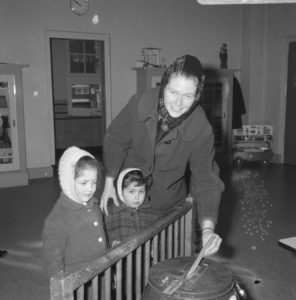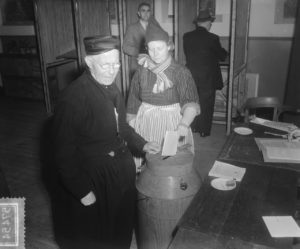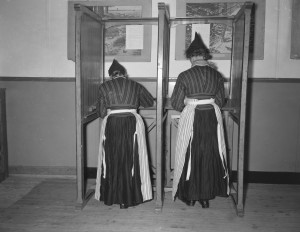In the Netherlands, people do not have to register to vote. Our government knows where people live, and voting passes are sent to their homes. So voting records do not show party affiliations. In municipal archives, you can often find "Kiezerslijsten" that show the people who were eligible to vote. Voting itself is anonymous, so these lists will not tell you what your ancestors' political views were. Newspapers, which can be searched at Delpher, often provide the first clue that your … [Read more...]
Dutch term – Verkiezing
Verkiezing means election. In the Netherlands, it took until 1917 for all men to get the vote. Before that time, only men with sufficient means were allowed to cast a vote. Women followed two years later and got the vote in 1919. In the Netherlands, citizens can vote for three levels of government: National (Tweede Kamer, house of representatives) Provincial (Provinciale Staten, provincial representatives) Municipal (Gemeenteraad, the town council) Water board … [Read more...]
Dutch term – Kiesrecht
Kiesrecht means suffrage, the right to vote in political elections. In the Netherlands, the first democratic elections were held in 1795, but only a men owning property over a certain value were allowed to vote. It wasn't until 1917 that the right to vote was granted to all men, and women followed two years later. Voter registration records of these first universal elections have survived for several places and can be found in municipal or regional archives. … [Read more...]




